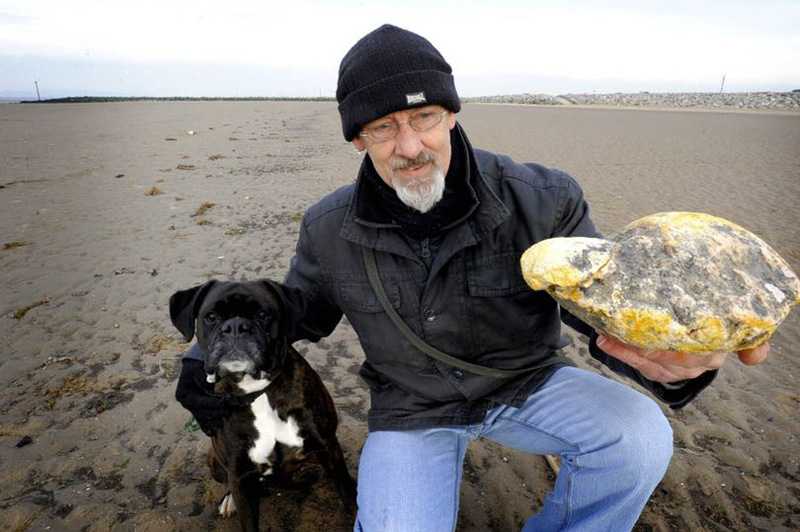If you don’t believe in the popular saying “someone else’s trash is someone else’s treasure”, these stories might change your mind:
A ten-year-old vacationing in Wales stumbles across a rock worth nearly $6,000.
A 67-year-old New York native receives a candle-like rock in the mail from her 80-year-old sister and discovers she may be $18,000 richer.
A dog walker from UK is in the money (£100,000) after spotting a smelly yellow rock on a beach.
According to the experts, these rocks are all waste products of sperm whales – the ambergris.
Also known as the whale vomit, ambergris is worth thousands of dollars per pound.

The ambergris is one of the most important ingredients used by perfume makers for their signature scents.
The ambergris helps fix the perfume’s scent onto the human skin and make it last longer. Although it might smell horrible (after all it’s a waste product from whale) at first, the foul odor of ambergris subsides as it ages.
Experts say that after weeks of storage, this whale waste will release a sweet and earthy scent making them a perfect perfume ingredient.
Researchers and scientists from the National Geographic said that ambergris comes from the sperm whale’s intestinal tract. It originates in the intestines of male sperm whales after they dine on squid, whose hard, pointy beaks abrade the whales’ innards.
And in order to protect themselves (the whales) from any kind of stomach problem, they release a fatty substance to surround those hard pointy beaks.
They will cast out a huge lump up to hundreds of pounds at a time.
Although many people refer to it as whale vomit, scientists have proven that whales don’t expel ambergris through their mouth.
They all concluded that the animals expel them through fecal excretion.
And because of the amount of money that can be made out of this waste products of sperm whales, there are already group of people who are dedicating their time and resources in search for ambergris.
Even regular fishermen are already on the lookout for this “floating sea gold”.
Via ambergris.fr, scientificamerican.com, curiosity.com, mirror.co.uk
